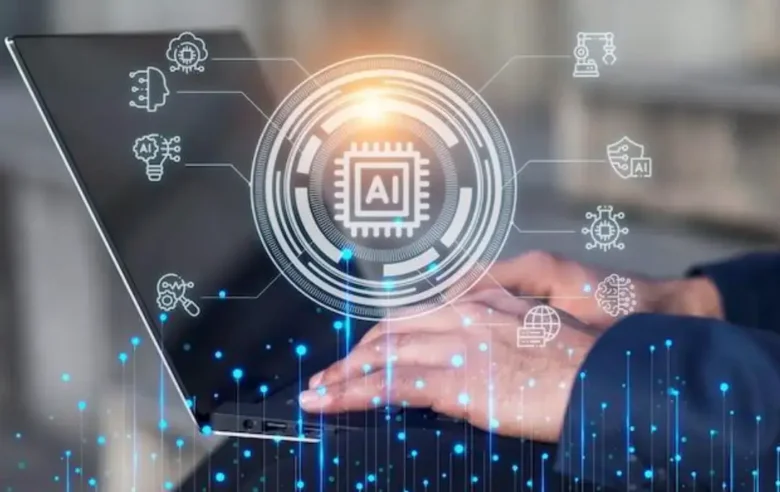There is no need to argue that Artificial Intelligence is changing the dynamics of business more than we ever imagined. Whether machine learning has come as a threat to job loss, or robotic process results have come as a virtue in aiding customers’ firm’s processes, this technology has proven to be an extremely useful and important tool for business expansion and development. With change being an important virtue, adopting AI in the business gives the business a competitive edge.
What does this mean for you? Imagine accessing solutions that are backed with data to help reduce the amount of time it takes to perform tasks and enhance customer satisfaction. Visualize a scenario shortly where all the uninteresting little things would all be done behind the scenes and your people will not be bogged down by the day-to-day operational tasks. AI is more efficient but its real benefits lie in generating new possibilities and new markets that usually aren’t plowed through by firms.
Since the correlation of this technology is increasing its adoption by businesses globally, searching for the potential benefits that AI may serve you, becomes important. Let’s see how artificial intelligence can change the concepts of your business and help to grow in ways that have never been possible.
Advantages of Using AI in Business Operations
AI unconventionally improves business operations. By making routine tasks obsolete, employees direct their efforts to more productive tasks. There is an increased sharpness in decision-making with the use of analytics powered by AI. Huge volumes of information become more manageable to analyze and useful resources, which provide guiding information to market and develop the needed products.
The same goes for the customers. Instant responses to questions are given by the chatbots. Susceptibility of customers to calls is improved and waiting time is decreased significantly. Also, users can enjoy personalized recommendations through the assistance of artificial intelligence. Users make purchases that are appealing to them and hence AI recommends products by considering the user’s similarities, differences, tastes, and preferences.
Common Misconceptions about AI and Dispelling Them
There is a popular belief that human jobs, particularly in the hospitality sector, are in danger of being eaten completely by AI. While the use of machine learning greatly enhances the efficiency of operations, it increases the demand for new jobs that involve peoples’ brains and sensitivity toward others. There is a second misconception that once implemented, systems incorporate AI and they become faultless. In other words, they work well, however, usually, they can only be focused on certain issues or domains. There is a fair amount of dependency on the quality of data.
Some people believe that applying AI is only for massive organizations that have lots of capital in their budgets. Nevertheless, there are cost-friendly packages available for small and mid-tier firms that can greatly put processes in place. A lot of people are worried that AI tends to be inscrutable. However, with the development of explainable AI, there are now such things as decision interpreters built within the organization.
Steps to Apply AI Into Your Business
You must first evaluate what your business requires. Try and find how AI can cut costs, create value for customers, or improve other processes. After that, you need to specify suitable technologies. Go out there and check what AI tools exist in the market. Search for alternatives that would be suitable and effective in accomplishing the given tasks within a budget.
Once you have selected a tool, consider piloting it. This helps in estimating the relevance of the tool at that particular time without overexerting the team or extra resources. There is a need for education. Make sure workers know how to operate the new technology. Factors such as workshops or e-learning focusing on what they do may help.
Risks and Challenges of Incorporating AI into Your Business
The integration of AI in any business has its downsides, nevertheless, it has its upsides. Data privacy, for example, is a major problem. Businesses should very well protect sensitive information to avoid data breaches that would negatively affect the business. Another issue concerns the so-called diskless workforce and extreme job loss. Employees may be threatened by machines and lose professional ethics demoralizing the employees emotionally. There should be harmony between using machines to perform some tasks without eliminating some human inputs.
Also, once a company buys an AI system, it will not sit idle. The extra level of detail and cost is something that every company must think through. It can be made to happen but getting ‘there’ is the difficulty. It is common for companies to encounter pushback from employees who generally mistrust the new technology or ways of working, hence it isn’t easy to train people.
The Future of AI in Business Growth
There is a lot that is yet to be done regarding the American movement on economic growth and artificial intelligence. The business benefits and growth that come with accommodating AR are enormous and notable. Organizations are more effectively utilizing cooler AI applications that include the more recent algorithms and insider business processes. Predictive analytics will soon be the order rather than the exception because of the specific advances made. That is, more informed decisions will now be made in even less time than is currently possible.
The centrality of AI will be transforming in the manner that every consumer experience is personalized. Those organizations that make productive use of this technology will have a huge competitive edge. The change will involve the streamlining of the place as humans will have to work in combination with machines. The employees wish to manage the goals whereas normal operational processes will be managed by intelligent devices.
Conclusion
AI is not only a trend due to it being a technology, but it is also an effective tool for business transformation. The potential inclusiveness of AI will make the business processes efficacious in innovative transformation. Companies that implement AI find themselves in an avoidable situation above the rest of the players in the industry. They benefit from data-supported insights which are an extreme luxury to them previously.
Amidst the changes, competition will prevail, and the scope will still be embracing these changes. Those faring well or who will use AI will find new dimensions of carrying out transactions in an efficient way. Pouring funds into such technology is not only about the competition but about gaining the upper hand in your industry. There is great potential for growth since every aspect done with the aid of artificial intelligence and other advanced technology can be perfected.
FAQs
1. How can AI help small businesses?
For small businesses, the instruments available for common tasks bear fewer limitations, consequently offering efficiency that AI can change for the better in the future. Enhancing staff productivity to drive growth is their aim usually because of removing the monotony of doing the same procedures over and over again.
2. What are some artificial intelligence (AI) tools that can be used by businesses?
There is a plethora of AI tools available for various purposes. Chatbots allow customers to reach immediate solutions for their problems 24*7. Box analytics give insights. Also, there are market automation systems that manage the campaigns more effectively based on the response of the users.
3. Is it expensive to implement AI?
The price of implementation differs with the degree of difficulty or comprehensiveness of a project. As there will be some starting costs incurred, most businesses realize that these costs get compensated when efficiency is raised over the long term.
4. Is AI application possible for me without having technical skills?
Yes! Indeed, several such user-friendly interfaces don’t require more than basic computer literacy from the users. Some firms provide off-the-shelf products suitable for this category of users.
5. In which sector are there more impactful AI applications?
AI has the potential to bring forth changes in a variety of sectors like healthcare, banking, retail, and manufacturing owing to the advancement in technology. Each industry applies this technology in its way whether in predictive maintenance or enhancing the shopping experience.
6. Will my employees be replaced by AI when it comes on board?
There will be some changes in some roles that are more geared towards technical work as some activities will be automated but more jobs will be created on the modification and management of the systems involved in technology. Replacement is not usually the objective, enhancement to the existing roles is.




